Join our email list to get Special reports and updates: https://dougcasey.substack.com/about
Connect with us on Telegram: https://t.me/dougcasey
Mentioned in this episode: https://internationalman.com/articles/doug-casey-with-some-thoughts-on-phyles-islam-and-warfare/ Marcus Aurelius: https://www.amazon.com/Emperors-Handbook-Publisher-Scribner/dp/B004OSSUDS/ref=sr_1_4
Chapters: 00:00 Intro The evolution of nanotechnology (00:02:27) Doug explains the concept of nanotechnology, its origins, and its potential applications in various fields.
Potential dangers of cyber warfare and bio warfare (00:06:46) Doug discusses the potential threats posed by guerrilla groups engaging in cyber warfare and bio warfare, including the creation of home bio labs and the use of drones.
Collapse and civil war in the US (00:11:16) Doug mentions a movie called "Leave the World Behind" executive produced by the Obamas, which depicts a collapse in the US triggered by an attack on the electrical grid, leading to social disorder and civil war.
The evolution of warfare (00:13:22) The speakers discuss the evolution of warfare from ancient times to the present, including the potential for a restart of the war between Christianity and Islam.
The absence of non-combatants (00:16:25) The conversation explores the idea that in future conflicts, there may no longer be such a thing as non-combatants, particularly in religious wars.
Living well and ethics (00:18:27) The speakers delve into the concept of living well and the importance of ethics in shaping one's mindset and actions. They mention Daoism and Stoicism as philosophical frameworks for studying ethics, with Marcus Aurelius' "Meditations" being recommended as a good read.
The birth certificate and identity (00:30:39) Discussion on the history and implications of birth certificates, the possibility of multiple identities, and the consequences of being stateless.
The Fed and interest rates (00:35:44) Disregarding the opinions of economists and the Federal Reserve, questioning their ability to control interest rates, and criticizing their decision-making process.
The phenomenon of pole shift (00:38:22) Brief mention of the belief in a 12,500-year pole shift phenomenon, without further elaboration.
The poles shifting and its potential effects (00:38:24) Discussion on the cyclical nature of the poles shifting and its potential impact on electronics and communication systems.
Opportunity to broker swaps between countries for citizenship rights (00:42:19) Exploration of the idea of swapping citizenship rights between countries and the reasons why it might not work.
The existence of small microstates and their usefulness (00:45:25) Discussion on the value and purpose of small microstates, such as those in the Caribbean, and the potential benefits of having more recognized states in the world.
The Obamas and Reality (00:51:12) Discussion about the Obamas' relationship with reality compared to a business person like Trump.
Investing and Cash on the Sidelines (00:51:26) Conversation about the proportion of money deployed in the markets versus cash sitting on the sidelines for good speculations.
Gold's Fair Value (00:55:57) Explanation of how gold's value is calculated relative to other assets and its historical price movements.
Family values and Latin America (01:03:15) Discussion on the value of families in Latin America compared to the US and how it influences societal perspectives.
Exploring Africa for opportunities (01:03:37) Recommendation for young males to explore Africa, including unconventional places like Central Africa, for potential opportunities.
The importance of traveling and experiencing the world (01:04:43) Highlighting the diminishing possibility of travel and the importance of experiencing different cultures and places while it is still feasible.

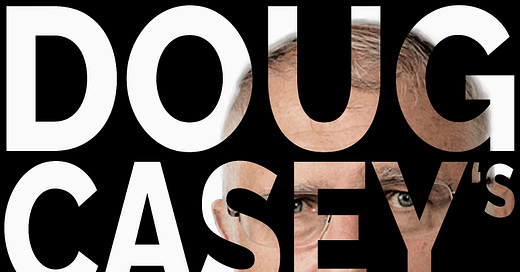



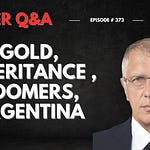
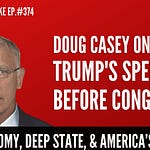
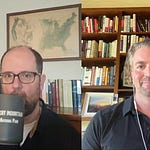
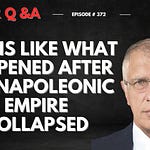

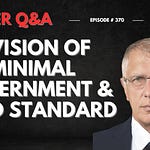

Share this post